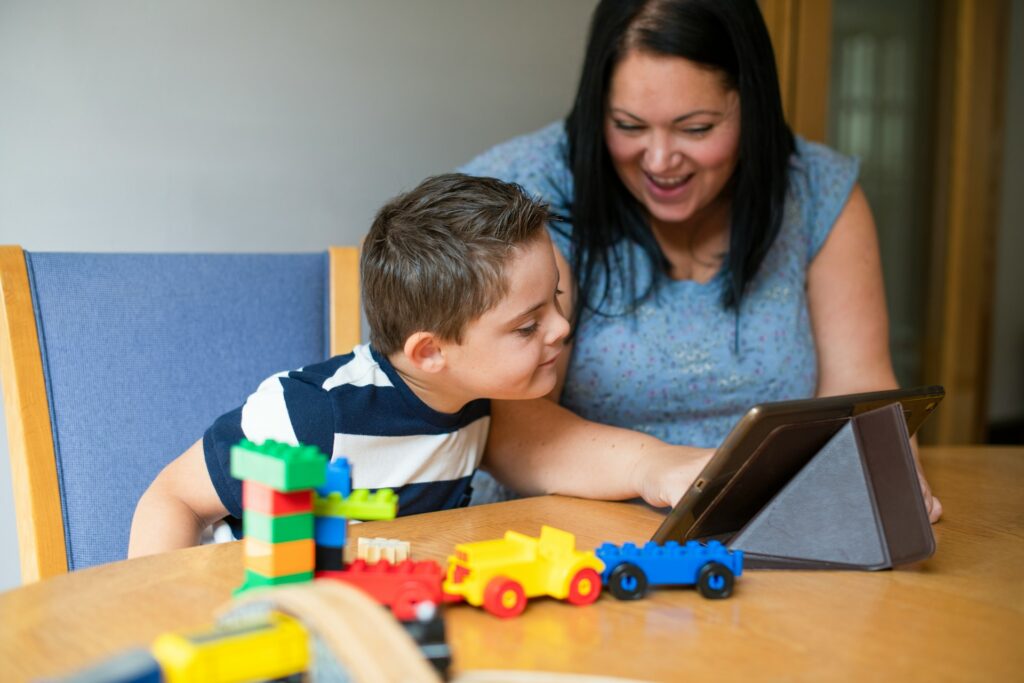Helping children with autism build self-esteem is a crucial part of their development. It’s more than just boosting confidence—it’s about understanding their unique perspectives and guiding them to feel valued and competent. Self-esteem is an important part of growing up for any child, but it can be particularly challenging for those on the autism spectrum. Children with autism may face obstacles that others do not, such as difficulty interpreting social cues or challenges with communication. These hurdles can impact how they see themselves and their place in the world.
Counseling plays a key role in tackling these challenges. It provides a structured environment where children can explore and express their feelings, understand their worth, and develop confidence in their abilities. Counseling not only supports children directly but also offers parents insights into fostering a nurturing home environment. In this article, we will explore how counseling specifically aids in building self-esteem in children with autism.
Understanding Self-Esteem in Children with Autism
Self-esteem refers to how much someone values themselves and how they perceive their worth. For children with autism, building self-esteem can be tricky due to the different ways they experience the world. They might struggle with understanding social interactions, handling sensory overloads, and routines that can be overwhelming. These experiences sometimes make them feel different from peers, which can affect their self-confidence.
To grasp why this happens, we must consider how autism affects a child’s interactions and self-view. Children with autism often process information in unique ways, which may lead to misunderstandings in social situations. They might find it challenging to pick up on social cues, like facial expressions or tone of voice, which can lead to confusion and frustration. This experience might make them feel uncertain about their social skills and relationships.
Since these children often interpret the world differently, they might face more criticism or exclusion from peers, impacting their self-esteem. However, understanding these challenges is the first step in helping them regain confidence. By recognizing their strengths and helping them work through difficulties, we can make a real difference in their lives. For instance, playing structured games that focus on turn-taking and communication can help them practice skills in a safe and controlled setting.
Counseling provides a space to identify and address these specific struggles while also teaching children how to celebrate their unique strengths. In the supportive environment of counseling, they can build a positive self-image and learn strategies to cope with challenges. This nurturing approach enables them to feel more secure and self-assured in both familiar and new situations.
Role of Individual Counseling in Building Self-Esteem
Individual counseling can make a big difference for children with autism by focusing on their specific needs. With one-on-one support, kids get the chance to talk about their feelings in a safe space. This personal attention helps them recognize their strengths and set realistic goals for themselves. Counselors use activities tailored to each child, such as social skills training or role-playing exercises, to teach new ways of interacting while fostering self-assurance.
These counseling sessions create opportunities for kids to practice important skills. For instance, a child might engage in a scenario where they practice introducing themselves, learning how to express interests, or ask questions—key components in building social networks. Knowing how to respond to different cues can give them a boost in confidence, especially when presented clearly in a controlled environment.
Counseling also involves parents, guiding them on how to reinforce what their children learn. This collaboration ensures that kids receive consistent support both at home and in therapy, which solidifies the progress made during sessions. When parents actively participate, they help create a strong support system that encourages ongoing growth.
Benefits of Individual Counseling for Self-Esteem
The impact of counseling extends beyond the sessions, promoting skills that enrich various aspects of life:
– Social Skills: Children improve their ability to engage with others, making friends and understanding social rules better.
– Communication Skills: They learn effective ways to express themselves, contributing to improved conversations at home and school.
– Confidence in New Situations: Over time, the children become more willing to try new activities and interact with unfamiliar people, reducing anxiety around change.
– Emotional Well-Being: As children gain confidence, they feel more secure and happier, which positively influences their daily interactions and relationships.
Practical Tips for Parents
Parents play a vital role in nurturing their child’s self-esteem outside of counseling sessions. Here are some practical steps:
– Regularly give positive feedback to celebrate achievements, no matter how small.
– Maintain a routine that combines structured activities with free time, providing comfort and security.
– Set realistic expectations and encourage effort over perfection.
– Work closely with counselors to stay informed about ongoing strategies and practices that can be reinforced at home.
Encouraging Positive Growth
It’s important to remember that building self-esteem is an ongoing journey. Through consistent support and effective counseling, children with autism can develop a strong sense of self and thrive in both familiar and challenging scenarios. It’s all about acknowledging their unique abilities and nurturing their growth in a way that makes them feel empowered and understood.
By taking the time to understand and support these children, we pave the way for a positive future. Encouraging self-esteem not only benefits them personally but also enriches the lives of those around them, fostering an environment where everyone can connect, grow, and succeed together.
To foster a nurturing environment for your child, consider the benefits of individual counseling as a supportive step in building their self-esteem. At Behavioral & Educational Solutions P.C., we integrate evidence-based methods to strengthen your child’s growth journey. Explore our approach to individual counseling for children with autism and see how we can support your family in Silver Spring, MD.





